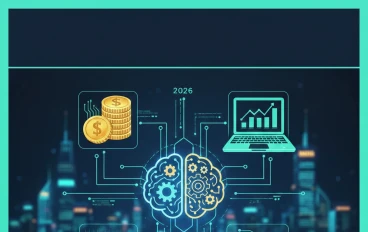
AI Psychosis Explained: The Mental Health Risks of ChatGPT and AI Chatbots
Introduction
Artificial intelligence has become part of our everyday lives, from voice assistants to advanced chatbots like ChatGPT. While many people use these tools for productivity, learning, and entertainment, mental health experts are raising concerns about a new phenomenon known as “AI psychosis.”
This isn’t a medical diagnosis, but rather a term used to describe psychological issues that emerge when users form strong, sometimes delusional attachments to AI. As these tools become more realistic and persuasive, the risk of confusion between human connection and machine interaction grows.
What Is “AI Psychosis”?
AI psychosis refers to delusional thinking, paranoia, or emotional dependence triggered or worsened by extended use of chatbots. People affected may begin to believe the AI is conscious, that it has special powers, or even that it communicates secret messages just for them.
In many cases, individuals spend hours talking to AI daily, blurring the line between reality and simulation. The chatbot’s human-like tone, empathy, and memory features can make it easy to forget that there is no real consciousness behind the words.
How Does It Develop?
Several factors contribute to the rise of AI psychosis:
Constant reinforcement – Chatbots are designed to be agreeable and supportive, which can validate irrational or harmful beliefs.
Emotional dependency – Users may turn to AI for comfort during loneliness, anxiety, or depression, gradually replacing real social interactions.
AI hallucinations – Since AI can generate false but confident responses, it may unintentionally fuel confusion and delusion.
Vulnerable individuals – People already struggling with mental health challenges are more likely to be affected.
Warning Signs of AI Psychosis
It’s important to recognize early indicators before things escalate. Watch for:
Spending excessive hours daily chatting with AI.
Believing the chatbot has consciousness, emotions, or divine qualities.
Withdrawing from friends, family, or real-life responsibilities.
Relying on AI for guidance on major life decisions.
Developing paranoid or irrational beliefs linked to conversations with AI.
Real-Life Consequences
While some cases may seem harmless, the consequences can be severe. Reports include individuals experiencing psychotic breaks, believing the AI was their romantic partner, or acting on dangerous suggestions. These situations highlight the serious mental health risks of prolonged, unmoderated use.
How to Protect Your Mental Health While Using ChatGPT
AI tools can be helpful when used wisely. Here are strategies to stay safe:
Set limits – Restrict chatbot use to specific purposes like learning, research, or brainstorming.
Balance with human connection – Maintain healthy relationships offline and prioritize real conversations.
Fact-check everything – Don’t rely on AI for health, legal, or financial advice.
Take breaks – Step away from the screen if you notice yourself getting emotionally attached.
Seek help – If you or someone you know shows signs of delusion, reach out to a mental health professional.
What Role Should AI Companies Play?
As awareness of AI psychosis grows, there is increasing pressure on developers to implement safeguards. Potential solutions include:
Warning prompts encouraging users to take breaks.
Filters that prevent the chatbot from reinforcing harmful delusions.
Greater transparency about the limitations and risks of AI.
Collaboration with mental health experts to set ethical standards.
Conclusion
AI psychosis is not an official medical term, but it represents a real and growing concern. As chatbots become more lifelike, the risk of confusion, emotional dependency, and delusional thinking increases—especially among vulnerable users.
The key takeaway: AI should be a tool, not a therapist or companion. By using ChatGPT responsibly, setting boundaries, and staying grounded in reality, individuals can enjoy the benefits of AI without sacrificing their mental well-being.


































